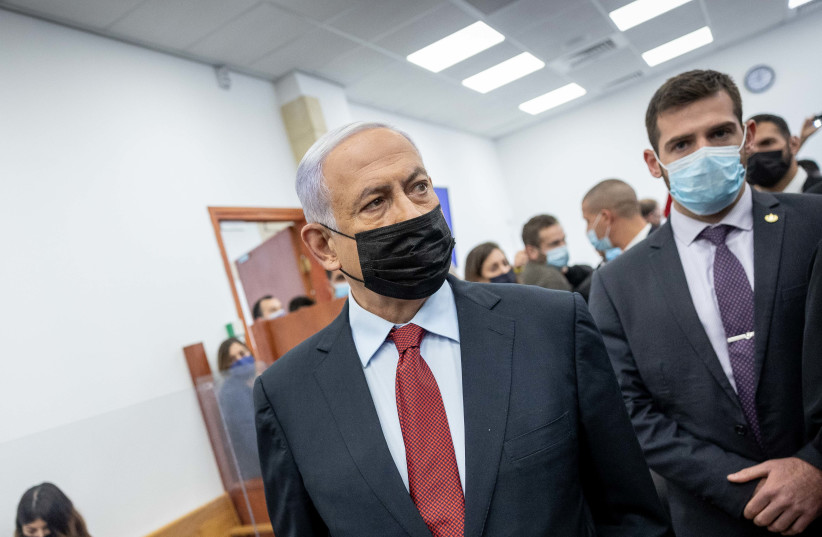Star prosecution witness Shlomo Filber testified on Tuesday that former prime minister Benjamin Netanyahu called to ask him in late 2016 if any laws had been broken at the Communications Ministry in the handling of issues related to Bezeq.
Testifying before the Jerusalem District Court in Netanyahu’s public corruption trial, his former top aide and Communications Ministry director-general turned state’s witness said the former prime minister called him asking, “Is there anything problematic related to [Bezeq owner Shaul] Elovitch that we did in the Communications Ministry?”
Netanyahu was asking Filber after new media reports had exposed potentially problematic relations between Netanyahu and Elovitch that later served as the heart of Case 4000, the Bezeq-Walla Affair.
In a mix of police statements in 2018 and more recently, as in court on Tuesday, Filber said that Netanyahu’s question was disingenuous.
Filber said it was clear to him that Netanyahu was calling and “playing dumb” to create a later alibi of having tried to crack down on anything inappropriate despite having been his puppeteer.

The former top Netanyahu aide said he knew the prime minister remembered at least three prior conversations on the issue, in June 2015, early 2016 and later 2016, in which Filber was repeatedly ordered and pressured to favor Bezeq and Elovitch regarding regulatory issues.
Despite knowing this, Filber said that in late 2016, he loyally played the role of his boss’s lieutenant in helping provide an alibi.
He said he told Netanyahu that the only thing to worry about was potentially the former prime minister’s approval of the Bezeq-Yes merger, but that even there, he was covered given that apolitical legal officials had approved the merger.
Later, Filber told police and the court that this was not true, but that at the time his job was to protect Netanyahu from exposure.
For example, Filber testified in earlier court hearings that he pressured the apolitical legal official to drop their objections to policies favoring Bezeq, and sometimes circumvented them entirely.
Also on Tuesday, Filber testified about meetings he had with another former top Netanyahu aide turned state’s witness, Nir Hefetz. Filber said he met with Hefetz multiple times to give him instructions about how to handle Bezeq, referencing a connection to how Elovitch’s media site Walla would cover Netanyahu.
In one incident, Filber said Hefetz told him to even slow down a policy that would help Elovitch pending a potential election in 2017, to make sure that Walla remained loyal to Netanyahu until Elovitch got what he needed from the ministry.
Tuesday was the last day of Filber’s testimony regarding Case 4000.
Filber is scheduled to testify on Wednesday about the other cases Netanyahu faces.
After the Passover recess, the defense will then cross-examine Filber for an estimated one to two months.
Some believe that following cross-examining Filber, there will be another serious push by the sides to reach a plea deal.
